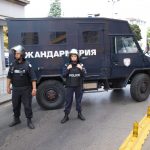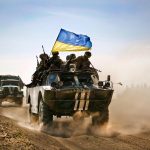
Russia Monitor is a review of the most important events related to Russian internal and external security, as well as its foreign policies.
Date: 22 March 2021
Dispute Over Navalny’s Election Plan: No United Opposition In Russia
Russian opposition figure Alexey Navalny never got along with the country’s opposition parties. Their distrust and spats over what strategy to adopt are beneficial for the authorities. The State Duma elections in September will, however, be a challenge for the Kremlin as support for United Russia is dropping.

People’s Freedom Party, or Parnas, will not run as an independent candidate in the State Duma vote this September. Yet the party will not back Navalny’s idea of “smart voting,” Mikhail Kasyanov, its leader and former prime minister of Russia (2000–2004), told the party congress in Moscow. Before the last State Duma vote in 2016, Parnas made up a coalition of forces that included Navalny’s supporters. It broke up shortly before the election while Parnas did not manage to win even 1 percent of the vote. Now the congress decided to include the party into the opposition coalition if one is formed. What is “smart voting”? The strategy has the chief goal to enfeeble United Russia. Navalny’s purpose is to endorse the candidate the opposition judges best placed to defeat United Russia in each race. Anti-Kremlin opposition members deem the tactic controversial: it consists of campaigning for the single most viable United Russia challenger, regardless of their party affiliation and viewpoint. That is exactly what Kasyanov said while announcing his party would never support the communist party or Zhirinovsky’s associates in the race against United Russia. With the popularity ratings of some parties, the “smart voting” tactic means support for members of the two parties now present in the State Duma and often referred to as “systemic opposition.” Interestingly, on Saturday, March 20, Vyacheslav Volodin, the speaker of the State Duma, said “smart voting” was masterminded by Western special services.
Support Us
If content prepared by Warsaw Institute team is useful for you, please support our actions. Donations from private persons are necessary for the continuation of our mission.
The stance adopted by Parnas confirms the distrust of Navalny expressed by members of the non-parliamentary opposition labeling itself as liberal, center-right, and democratic. In January, Grigory Yavlinsky, the founder of Russia’s largest liberal political party Yabloko, turned his fire on Navalny, accusing him of political self-interest and rowdiness, a little helpful attitude while fighting the regime. Six months from polling day, the regime must first thwart people linked to Navalny and others, far more radical than parties like Parnas or Yabloko, as both laid down their arms. Russian police carried out searches on Friday, March 19 at the Moscow offices of a media outlet MBKh and an opposition group Open Russia associated with Kremlin critic and former oil tycoon Mikhail Khodorkovsky. Founded in 2014, Open Russia seeks to bring together pro-European forces in Russia to form a united opposition. The movement held a forum dedicated to discussing parliamentary and local elections in Moscow, during which Russian police detained around 200 people. Also on March 19, Russian officers made the crackdown on Navalny’s associates in the Russian Far East. Police have swept through the Far East city of Khabarovsk and detained several journalists and Navalny activists, including the chief of Navalny’s team. Meanwhile, the pro-Kremlin United Russia party’s ratings are lagging ahead of key legislative elections. United Russia, which enjoys a two-thirds majority in the country’s lower house of parliament, would receive 27 percent of the vote, according to the Levada Center polling agency and its February poll. According to Kremlin strategists, the results represent a predictable lull in September. Implementing Navalny’s scheme on a large scale could jeopardize these plans – though the government must rig the vote without that anyway – local and regional elections in some Russian regions proved the effectiveness of the “smart voting” scheme.
All texts published by the Warsaw Institute Foundation may be disseminated on the condition that their origin is credited. Images may not be used without permission.

















